The Compatibilist Imagination
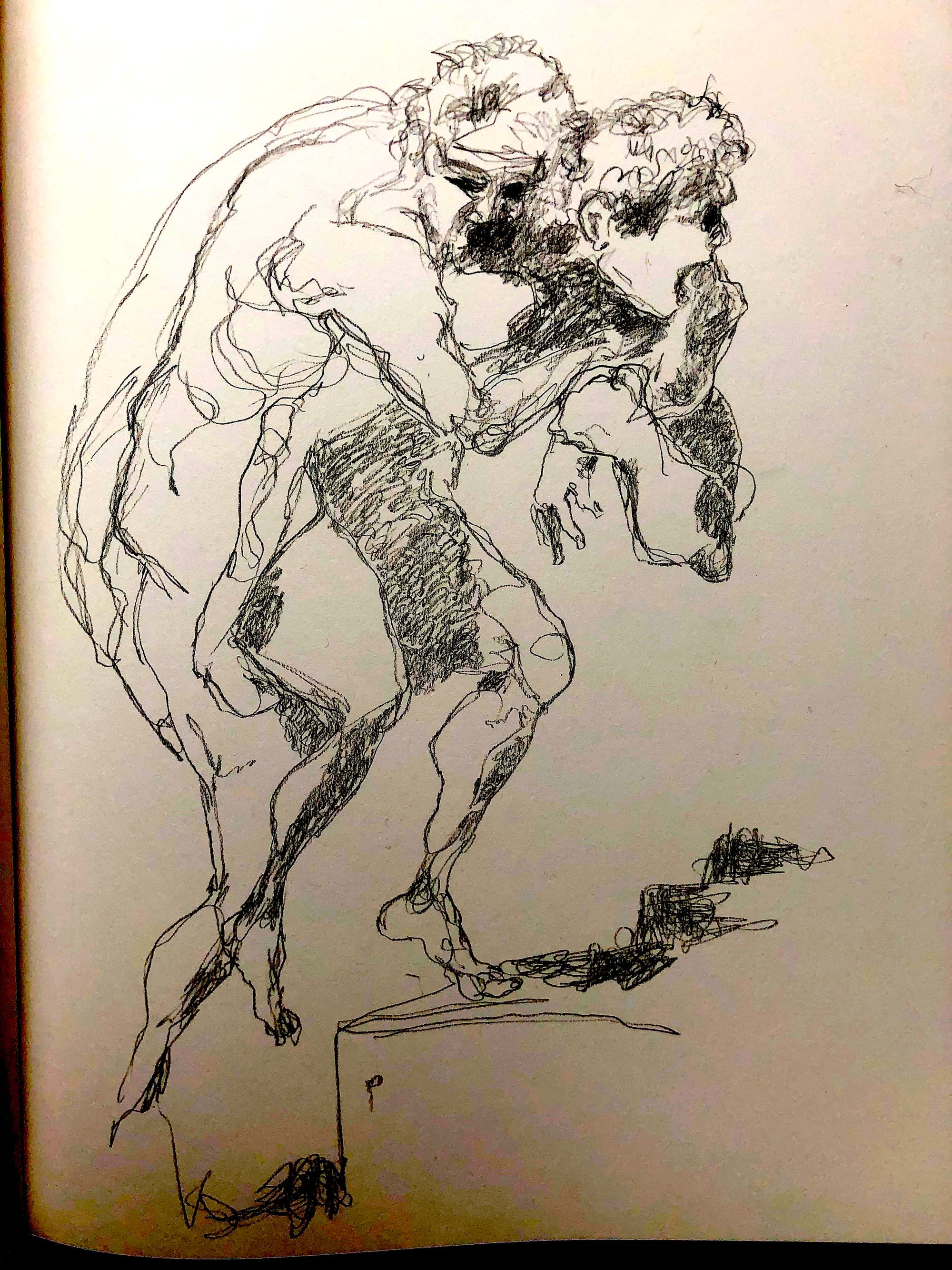
Interview by Richard Marshall

'One of the main objectives of my recent work has been to rehabilitate imagination in terms of its epistemic usefulness. I think that by attending to the way that imagination works in both instructive and transcendent contexts, we can better see how imagination can be used to teach us about the world. One reason that it’s important to treat these two uses together – that we shouldn’t go incompatibilist, as it were – is that we seem to slip seamlessly from transcendent to instructive uses, and back again.'
'To my mind, the recognition that imagination is a skill – that we can be better or worse at imagining, that some people are better than others, that we can get better at it by way of practice -- has the potential to clear up a lot of misunderstandings about imagination that pop up throughout the philosophical literature.'
'If my work is successful in showing the epistemic relevance of imagination, then it should rehabilitate imagination as an important philosophical tool. Moreover, if my work is successful in showing that imagination is a skill, then that gives us a new and potentially interesting way of evaluating disagreements about thought experiments.'
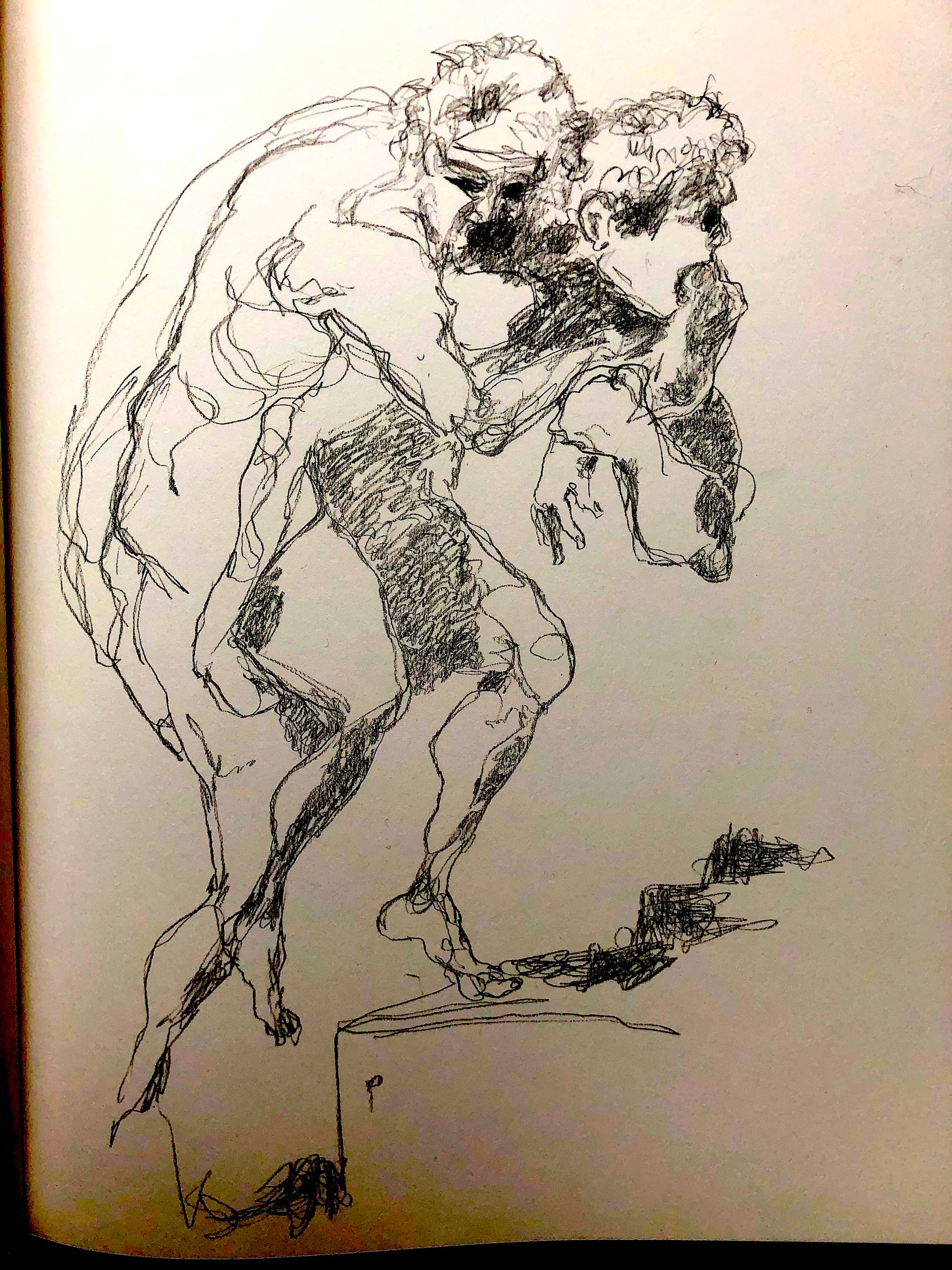
Amy Kind has broad interests in the philosophy of mind, most of her research centers on issues relating to phenomenal consciousness and issues relating to the imagination. Here she discusses the imagination, its transcendent and the instructive uses, her compatibilist approach, western theorising about imagination, imagination's methodological role, imagination and Mary's Room, what imagination is like, imagination and LA Paul's account of the transformative potential of experience, whether imagination is a skill, Kathleen Stock’s argument regarding extreme intentionalism, vivid imaginations, imaginative desire, and philosophical imagination.
3:16: Why did you become a philosopher?
Amy Kind: Unfortunately, I don’t have a particularly interesting origin story. I went to public high school in New Jersey, and in my senior year I took a class called Shaping of Western Thought, taught by a notoriously charismatic and influential instructor, Mr. Grosso. But don’t think Robin Williams in Dead Poets Society . Mr. Grosso was much more condescending than that. I think his success came not so much by inspiring us as by giving us a different kind of challenge from what we normally faced in our high school classes – a challenge that came largely from the philosophical texts that he incorporated into the class. This made me interested in giving philosophy a try in college, so I took an intro to philosophy class my first semester at Amherst, and that led to my taking another class, and then another, and all of a sudden I was a philosophy major.
Even so, I still wasn’t expecting to become a philosopher. I had always been active in my school newspaper, both in high school and in college, and my original plan had been to pursue journalism. But a summer internship at a local paper, where I was assigned the task of writing obituaries, turned me off of that. My next plan was a career in law. And then sometime during my junior year I started seriously contemplating graduate school in philosophy, and that summer, as I was thinking about completing applications to law school and PhD programs in philosophy simultaneously, I decided I had to figure things out. (I confess that my main motivation for sorting things out was that I didn’t want to take both the LSAT and GRE.) I really don’t remember what made me end up deciding the way I did. I suspect I didn’t have a particularly good reason. Certainly as a 20 year old I didn’t have a good idea of what being a philosopher would amount to. Sometimes I think I still don’t!
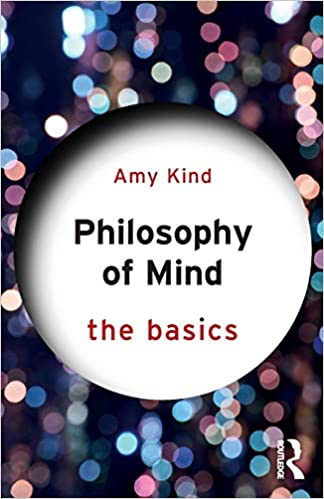
3:16: You’re an expert in the philosophy of mind and have a particular interest in the workings of the imagination. One of the puzzles you’ve addressed is how imagination is put to two distinct uses, what you call transcendent uses on the one hand and instructive use on the other, and presumably there are subdivisions of different kinds of mental activity associated with these two uses as well, so imagination is very heterogeneous on this view. So what do you mean by these terms and what do you think has been the negative impact of this bifurcated nature on philosophical discussion of imagination?

AK: When I teach my undergraduate seminar on imagination, I start on day one of the course by asking my students to reflect a bit on all of the different ways that they use imagination and all the different activities in which it plays a role. Here’s one of the student lists from my Fall 2019 class: creating art, reading a novel, trying to understand and empathize with others, pretending, setting goals, daydreaming, planning out one’s future, problem solving… and so on. In thinking about these different activities, we can see how they might naturally divide into two groups. In the first group we find activities where we use imagination to learn about the world as it is or will be – as when we plan, problem solve, set goals, or try to understand and empathize with others. This is what I mean by the<em>instructive</em>use of imagination. In the second group we find activities where we use imagination to escape or in some way transcend the world as it is – as when we pretend, daydream, create art, or read a novel. This is what I mean by the transcendent use of imagination. (And I should mention that these terms are first introduced in some joint work with Peter Kung.)
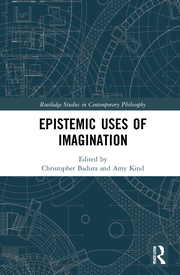
Thinking about these two different uses is one way to understand the heterogeneity of imagination. This heterogeneity may start to seem problematic when we realize that the features of imagination that allow it to accomplish certain ends in some of its uses seem like they would prevent it from accomplishing certain ends in other uses. So, for example, the fact that imagination is not world-sensitive – that the contents of imagination are not fixed by the world, in the way that the contents of perception are – is what enables it to be so useful in creative activities like art and in escapist activities like daydreaming and pretending. But this lack of world-sensitivity poses a threat to its usefulness in epistemic contexts. If imagining is not world-sensitive, then how can we use it to learn about the world? So this bifurcated nature of imagining, as you put it, has led to imagination being dismissed as epistemically irrelevant; traditionally, it was thought that imagination cannot play a useful epistemic role. Fortunately, to my mind, the tide on this has started to turn in the last decade or so, and philosophers of imagination have started to explore in earnest the epistemic usefulness of imagination. I’ve recently been working on a co-edited volume on this topic, and I’m happy to say that it should be published in just a couple of months.
To put my cards on the table right at the start, I’m an optimist about imagination. I think imagination can do much more than philosophers often give it credit for, and a lot of my work endeavors to bring this out in various ways.
3:16: You propose a compatibilist approach, showing how these two ways of looking at imagination can be put together and in so doing show how imagination can produce knowledge and truths about the world don’t you? Can you sketch for us your objective and why you think your approach is superior to maintaining the bifurcated silos? Why don’t you think equivocation is a good option here?
AK: It’s interesting that you’ve characterized my approach as compatibilism. I’ve never really put it that way myself and hadn’t thought of my approach in these terms, but the label rings true to me. I may have to steal it.
So, in line with my answer to your previous question, one of the main objectives of my recent work has been to rehabilitate imagination in terms of its epistemic usefulness. I think that by attending to the way that imagination works in both instructive and transcendent contexts, we can better see how imagination can be used to teach us about the world.
One reason that it’s important to treat these two uses together – that we shouldn’t go incompatibilist, as it were – is that we seem to slip seamlessly from transcendent to instructive uses, and back again. For example, I might be daydreaming or fantasizing about future travel once the pandemic ends, and in the course of that daydreaming my activity might start to morph so that I am now actively planning a future vacation and trying to figure out imaginatively what destination would be best. We need to understand what about my imaginative activity changes as the aim of my imaginative activity changes, and to do that, we need to be thinking about the various different uses of imagination together.
But to treat the two uses together, one must first recognize that imagination has epistemic uses. To some extent, the problem hasn’t been that philosophers have bifurcated the discussion as that they’ve neglected discussion of imagination’s epistemic usefulness. Insofar as imagination had been thought to play an epistemic role, it’s been in very limited contexts, such as when we’re trying to explore the epistemology of modality. Imagination might be able to tell us about what’s possible, so the thought goes, but it can’t tell us about what’s actual. This denial seems to be a mistaken way to think about imagination.
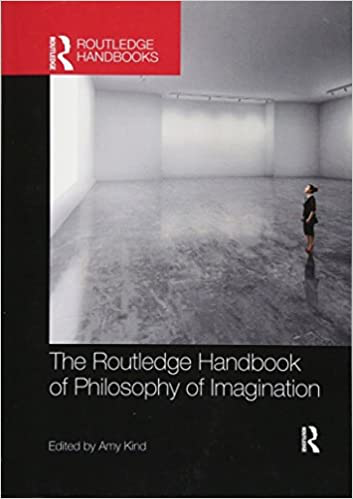
3:16: You’ve written about philosophical theorizing about the imagination with particular focus on its relation to belief and perception in the western tradition haven’t you. Who are the key figures in this and do they fall foul of taking a compatibilist approach?
AK: My work thus far has certainly focused on the western tradition. I hope at some point to learn more about imagination in other traditions as well. And within the western tradition, imagination is indeed often compared both to belief and to perception.
Many of the dominant figures in western philosophy had something to say about imagination – Plato, Aristotle, Hobbes, Hume, Descartes, Kant… (For people interested in these philosophers’ views of imagination, there are great chapters on some of these figures in the Handbook that I edited.) In most cases, however, imagination does not play an epistemically significant role – or, insofar as it does, it is only in the context of teaching us about possibilities (for example, Hume noted that nothing that we imagine is absolutely impossible). Kant is perhaps an outlier here, as he considers imagination an essential element of perception, and thus it would seem to be epistemically important for him. But Kant also presents a clear case of someone who gives a bifurcated treatment of imagination – distinguishing what he calls the reproductive imagination , which is the kind of imagination that plays a role in perception, from the productive imagination , which is the kind of imagination involved in creativity and other transcendent uses of imagination (in my sense of “transcendent”). More recently, in the 20 th century, philosophers such as Wittgenstein and Sartre both treated imagination as epistemically irrelevant.
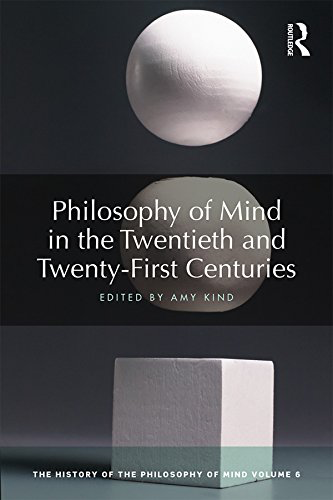
3:16: What has been the methodological role given to the imagination in things like philosophy of mind, metaphysics and ethics and does it work?
AK: Take a view like physicalism in philosophy of mind. Different versions of physicalism cast their claim in different ways, but to make things simple, let’s just think about one version of the view, the identity theory. On the identity theory, mental states are identical to physical states. But since identity claims are necessary claims, that means that the identity theory will be falsified not just if there’s some actual case where there are mental states that aren’t brain states but also if there are some possible cases where there are mental states that aren’t brain states. How do we determine if there are any such possible cases? Here’s where imagination enters. Philosophers construct thought experiments, scenarios that are to be considered in imagination. The basic idea, often called the imaginability principle , is that if a given scenario is imaginable, then it is possible. We see this same basic idea employed in other areas of philosophy as well. How do we know that it’s possible for a person to persist even in the absence of bodily continuity? Because we can imagine various cases in which one individual swaps bodies with another. How do we know that free will comes apart from the ability to do otherwise? Because we can imagine cases in which someone makes a free choice even though an evil scientist has made it the case that they could not have done otherwise.
Alas, the imaginability principle runs into trouble almost immediately. Someone who is ignorant about chemistry might think they can imagine a substance that is water but does not have the chemical composition of H 2 0. But water is necessarily H 2 0. So what went wrong? We have a couple of different diagnostic choices. Perhaps imaginability doesn’t really imply possibility, and the principle should just be flat out rejected. Or, alternatively, perhaps the individual didn’t really imagine what they thought they imagined. In pursuit of this latter line, many philosophers have tried to refine the imaginability principle. Perhaps, to use terms often associated with Descartes, an imagining has to be “clear and distinct” to shed light on possibility. Or perhaps we need to go even further and restrict the imaginability principle to cases of ideal imagination, when we are dealing with idealized imaginers who have all the relevant information.
These are hard issues. Can they be sorted out? I’ve said that I’m an optimist about imagination, so you can probably guess my answer. Perhaps what’s most important, I think, is that we have to remember that the guide that imagination provides us to possibility is meant to be defeasible. The fact that perception sometimes leads us astray, and that we can be subject to all sorts of perceptual illusions, does not lead us to reject perception as a source of information about actuality. So why should the fact that imagination sometimes leads us astray lead us to reject imagination as a source of information about possibility? The point here can be put even more generally. Philosophers tend to have a bad habit of holding imagination to an impossibly high standard, a standard that is much higher than the one they employ when talking about perception, memory, testimony, and so on. This rigs the game against imagination right from the start. So in thinking about whether imagination can do the methodological work that’s been assigned to it, I just want to be sure that we’re operating on a level playing field.
3:16: You’ve raised issues with assumptions about the imagination in the famous Mary’s Room thought experiment – itself an act of imagination supposedly leading to knowledge. So can you say what the issues are for you regarding this and why you think it assumes something misleading about imagination?
So the Mary case is an interesting one for me to think about. As Jackson set up the case, Mary is a future color scientist who knows the entire physical story about color and the brain’s color vision systems, but who has never seen color. She’s spent her entire life in a black and white room. And when we’re asked what happens when Mary leaves the room and sees a ripe tomato for the first time, most people have the intuition that Mary learns something new, that she has an “Aha” moment. (“Aha, that’s what seeing red is like.”) So if that’s right, then there must be something more to the story about color than just the physical story. Given my general inclinations in philosophy of mind, and my qualia realism, I’m inclined to take this case as showing us something important about the failure of physicalism. But given my general inclinations in philosophy of imagination, and my sense that much more might be within our powers of imagination than is often realized, I’m inclined to think that we might be drawing a mistaken conclusion about the case. So these inclinations are in a direct clash with one another, and I’m still working to try to sort them out.
But since we’re here focused on imagination, let me try to motivate why I’m worried about the Mary case. The intuition that Mary can’t know what seeing red is like while she’s in the room depends on the claim that Mary can’t imagine red while she’s in the room. But why shouldn’t she be able to do this? Suppose she sets this task for herself, and she works really hard at it. She does all kinds of imaginative training exercises where she works on building up her imaginative skills. She reads all sort of texts where people describe their experience of red. They relate it to things that she has experienced, like sounds and emotions. And so on. Why should we be so convinced that it’s impossible for her to imagine what it’s like to see red? People with highly developed musical skills can imagine what a piece of music sounds like just from looking at the score, and people with highly developed culinary skills can imagine what a dish tastes like just from reading the recipe. Now granted, they’re not starting from resources as impoverished as Mary’s are with respect to color. But when you show a chef a brand-new recipe, and they’re able to imagine exactly what the cooked dish will taste like, their imaginative act can seem almost like a feat of magic. In advance, we’d probably be tempted to deny that this is something that they’d be able to imagine. So why are we so convinced that Mary can’t perform an analogous kind of imaginative magic?
3:16: Rather than ask what imagination is we can ask what it’s like and you think this might be a fruitful approach. There are three accounts you discuss – impoverishment (Hume), will-dependence (Wittgenstein) and non-existence (Sartre/Kriegel) – so first could you just tell us what these accounts claim?
AK: Sure. All of these are views about imaginative experience. And just to be clear, thinking about what imagination is like is not meant to replace thinking about what it is. I think both questions are important, and neither should be pursued in isolation or at the expense of the other.
So, on what I call the impoverishment view, we should think of the phenomenal character of imaginative experience as a weaker or impoverished form of the phenomenal character of perceptual experience. What it’s like to visually imagine a hummingbird hovering around your hibiscus plants is similar to what it’s like to see a hummingbird, but the former experience has less “force and vivacity” (to use Hume’s words) than the latter. The will-dependence view starts with the fact that imagining, unlike perceiving, is a mental activity that is subject to the will. On this view, the phenomenal character of imaginative experience is imprinted by its willfulness. Finally, on the non-existence view, we can understand the phenomenal character of imagination in terms of a what we might think of as a sense of absence. When I see my dogs lying on the floor beside my desk, my experience carries with it a sense of presence. But when I imagine my dogs lying on the floor beside my desk, my experience carries with it a sense of absence. This presented-as-absent is thought to imprint the phenomenology of the experience.
3:16: You say they all fail but their failure flushes out some important insights about what’s needed. Could you explain your position here?
AK: Explaining how each of these views fails would probably require some extended discussion, but I think I can talk about the moral of the story without telling the story itself. In short, once we look in detail at these views, and we see their inability to fully capture the what-it’s-likeness of imagining, I think we might naturally start to become pessimistic about the exercise in which we’re engaged. Though I don’t like embracing that kind of pessimism, I do think we need to do some careful thinking about the whole enterprise of descriptive phenomenology. It turns out that while we’re very good at recognizing differences among phenomenal experiences and knowing what such experiences are like, we’re actually terrible about putting this into words. We’re just not good at describing phenomenology. Our vocabulary seems inadequate. (This also relates to our earlier discussion of Mary – if we were good at describing phenomenal experiences, if we did have adequate vocabulary, then we’d be able to tell Mary what seeing red is like.) So in order to make progress on accounting for and describing imaginative phenomenology, I think we’ll likely first have to make progress on accounting for and describing phenomenal experiences more generally.
3:16: You’ve also discussed David Lewis and LA Paul and their approach to saying what imagination teaches us – in particular the transformative potential of experience. You tend to feel that a better understanding of imagination would show that there’s much more that imagination can give us access to than the transformative arguers give it credit for don’t you?
Yes, I absolutely do. So Paul defines cases of transformative experience as experiences that are both epistemically and personally transformative – we can’t, in principle, know what they’re like prior to experiencing them, and they’ll also have unpredictable and deep effects on our core sense of self, our core preferences and values. This leads her to an argument about transformative choices. Normally, when aiming to make authentic choices about our future we do so by way of a process of cognitive modeling; we model the different outcomes for ourselves. But in cases of transformative experience, such modeling is not possible, and so in her view we cannot rationally make a choice about whether to undergo such an experience. One of her standard examples concerns the decision of whether to have a biological child. Since we can’t know what it’s like to have a child in advance of having the experience, and since having a child will result in changes to our core sense of self, cognitive modeling fails us and we can’t make a rational and authentic choice on the matter.
In responding to her cases, I suggest that she’s underestimating the power of imagination. The experience of being a parent has lots in common with other experiences. So I suggest we might use a process I call imaginative scaffolding– a process in which we draw on past experiences and build from them by combining, adding, subtracting, and modifying them – to imaginatively reach the experience of being a parent. Moreover, though I think it’s undoubtedly true that many people fail in their parental imaginings prior to becoming a parent, I also think it’s true that in many of those cases people don’t try very hard. They start on the imaginative project, but they then get distracted, or they are pulled in one direction or another by extraneous details. Successful imagining often requires pretty hard work, and I think that in many cases, people simply don’t put in that work.
3:16: Is imagination a skill?
AK: Yes! Perhaps this is evident from the answer I gave to the previous question, as I was first led to thinking about imagination in terms of a skills-based framework in the context of my criticisms of Paul. I have since published a paper developing that framework and have some follow-up papers in the works. This issue is front and center in my mind now.
To my mind, the recognition that imagination is a skill – that we can be better or worse at imagining, that some people are better than others, that we can get better at it by way of practice -- has the potential to clear up a lot of misunderstandings about imagination that pop up throughout the philosophical literature. For example, going back to the Mary case, do our intuitions change about what she can do when we think of her as a particularly expert imaginer? More generally, I’d like to see philosophers attend more closely to the fact that imagination is a skill in discussions about what can and cannot be imagined –with respect to thought experiments, the puzzle of imaginative resistance, cases of understanding others, and so on.
3:16: What do you make of Kathleen Stock’s argument regarding extreme intentionalism, that the fictional content of a book is determined solely by the author’s intention?
AK: I don’t really have a dog in the fight about how the fictional content of a book is determined. But I do have a dog in a related fight. To get her argument for extreme intentionalism off the ground, Stock relies on a very minimalistic conception of imagination. For her, the kind of imagining that we do in relation to fiction is nothing more than the reading and processing of lines of text. To my mind, this is a mistake. I have a much more robust conception of imagination. For someone to imagine something, on my view, it is not enough simply to process some text; imagining is not just a generic mental activity like thinking. I actually have an imagistic view of imagination, although this is not a majority position among philosophers of imagination. But even philosophers who don’t accept an imagistic conception of imagination tend to work with a more robust conception of imagination than Stock’s.
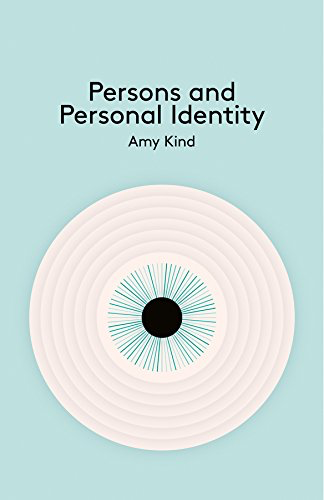
3:16: We talk about people having a ‘vivid imagination’ – what does it mean to say that and why do you think vividness is useless for philosophical enquiry?
AK: Well, part of the problem is that I don’t really know what it means to say that people have a “vivid imagination”! Basically, I think that a lot of the initially plausible suggestions for what vividness might amount to don’t really work – it doesn’t seem to have anything to do with the clarity of an image, for example, or the amount of detail contained in the image, or any of the other most natural suggestions that come up. And given that measures of vividness in the empirical literature rely heavily on subjective reports, there’s a real issue, since we don’t know that the subjects are all picking out the same kind of phenomena or whether they’re all using the same scale.
And so, if the notion of vividness doesn’t really pick out anything, or doesn’t clearly do so, then why would we rely on it? Doing so in philosophical contexts seems to have the potential to lead to further confusion and harm. For example, I worry that a focus on imaginative vividness contributes to the denigration of the epistemic significance of imagination. I was talking earlier about how it’s in part due to a comparison with perception – a comparison on which imagination doesn’t fare well – that imagination seems to be epistemically irrelevant. So the more we think of imagination as a pale reflection of perception – as a defective or degraded version of it, as less vivid than it – the more we feed into this, and the more we’ll be inclined to dismiss imagination’s epistemic usefulness. Now if we did have an adequate understanding of the notion of vividness and of how the content of visual imaginings differed from the contents of our perceptual experiences, then we could address the matter head-on. But if all we have is a confused and poorly understood notion of vividness, then that simply muddies the waters. While this notion suggests that imagination falls short of perception, it fails to give us a real sense of how it falls short, and so we’re unable to determine whether the way in which imagination falls short is epistemically significant.
3:16: How should we understand imaginative desire, and why shouldn’t we think of it in terms of ‘desire-like imaginings’ as some have proposed?
AK: Wow, we’re really ranging across a lot of different debates here! So in one sense, the notion of imaginative desire is unproblematic. Consider a child who is playing a game of pretend. She imagines that the sofa and chairs are boats and that the carpet is hot lava, and she also imagines that she wants to avoid getting burned by the lava. Both of these imaginings are of the same form; in both cases, she imagines that such and such is the case. But some philosophers argue that sometimes in imagination we start to have imaginative states that are of a different form, a desire-like form. In some cases, the child might come to take on in imagination desires that she doesn’t have, just as she takes on in imagination beliefs that she doesn’t have. She imaginatively believes that the carpet is hot lava, and she imaginatively desires that she stay out of it. Importantly, the child’s desire-like imagining is not meant to be a desire but rather a special kind of imagining. This special kind of imagining isn’t part of our folk psychological conception of imagination, but we have all sorts of other reasons to think that our folk psychological conception of the mind is in need of revision, so that shouldn’t bother us.
That said, I have to confess that I just don’t get how desire-like imagining is supposed to work. And proponents of it don’t really give us much help. They don’t really offer us any detailed characterization of this state.
One might wonder: why can’t we just advert to good old desires in the pretending case? Why not just say that the child wants to be successful when she jumps from one boat to another, and she wants to make sure that her feet don’t touch the lava. These are actual desires that explain what she’s doing, and we wouldn’t need to invoke some new kind of imaginative state to explain her pretending activities. In response, proponents of desire-like imaginings will claim that many times these states violate the normative constraints on desire, for example, that we can’t have desires about things that we know do not actually exist. But this strikes me as a mistaken characterization of the relevant normative constraints, as we have all sorts of desires about past and future events and existents, as well as about counterfactual events and existents. For example, I might desire that I could have a conversation with Descartes. I might desire that the garden I will be working on this summer – a project that I have not yet begun – will be colorful and healthy. I might desire that the pandemic had not caused me to miss my trip to Europe last summer. In none of these cases is the reasonableness of the desire undercut by the fact that the object of the desire is non-actual.
So, while proponents of desire-like imagining think we have to postulate a state of this sort to make sense of various phenomena, in my view we can explain the relevant phenomena perfectly well in terms of mental states that we already accept. In short, the postulation of desire-like imagining strikes me as insufficiently motivated.
3:16: Philosophy can look like the home of a very intense sort of imagination – the thought experiment is the tool of choice for many philosophers and seems to reek of the imagination. So as a take home, could you say if there is something special about philosophical imagination and what it’s like to philosophise using the imagination that might shed light on the discipline. There are those who wonder whether they should heed the philosopher because it seems to be just imagination – I wonder if your work gives them reason to pause and reconsider that position and feel more reassured that imagination can produce knowledge even when not grounded in empirical or purely logical data?
AK: Good question. And tough question. I have to confess that this isn’t something that I’ve thought a lot about – that is, the philosophical imagination as opposed to imagination in general. It’s probably something I should think more about.
So here are some very rough initial thoughts on the matter. If my work is successful in showing the epistemic relevance of imagination, then it should rehabilitate imagination as an important philosophical tool. Moreover, if my work is successful in showing that imagination is a skill, then that gives us a new and potentially interesting way of evaluating disagreements about thought experiments. Perhaps one reason for such disagreements is that some philosophers are more skilled imaginers than others. Both of these points focus on the instructive use of imagination. But I think the transcendent use of imagination proves to be very important in philosophy as well. In particular, I think it would be interesting to think more about the role of creativity in philosophy, and how creativity might be connected to various philosophical breakthroughs just as it’s connected to various scientific breakthroughs.
3:16: And for the readers here at 3:16am, are there five books that you could recommend that will take us further into your philosophical world?
AK: Thanks so much for phrasing this question the way you did. I really don’t like having to give lists of “the best books on…” or “my favorite books on…” But I’m happy to think about books that take people further into my philosophical world! That’s a cool way to think about constructing a list.
So here’s my answer… and these are in no particular order.
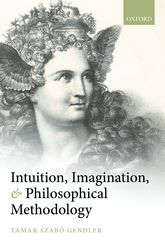
One philosopher of imagination whom I really admire is Tamar Gendler, and I have been really influenced by her work throughout her career. Her work is super rich and always thought-provoking. The volume of her collected works, Intuition, Imagination, and Philosophical Methodology, contains many of her classic papers on imagination such as “The Puzzle of Imaginative Resistance” and “Imaginative Contagion.” It’s definitely a book that would bring someone into the world of philosophical thinking about imagination.
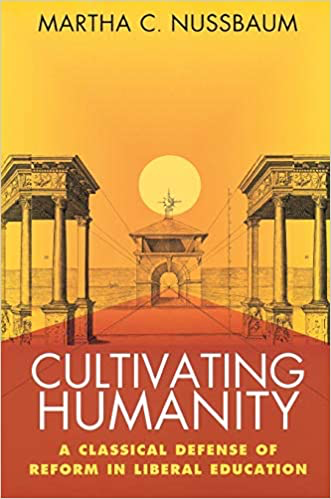
Recently as I’ve been thinking about imagination in a skills-based framework, I’ve been getting lots out of Martha Nussbaum’s work. For example, I love her discussion in Cultivating Humanity about how one can cultivate one’s empathetic imagination (what she calls the narrative imagination) by engagement with literature.
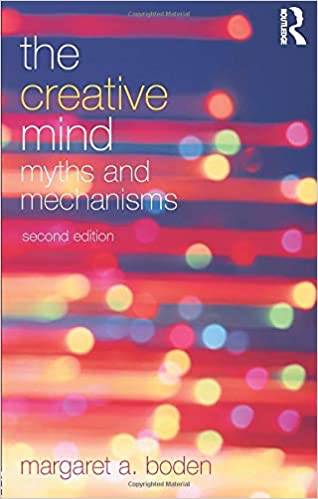
Also related to my interest in thinking about imagination in a skills-based framework, I’ve recently been thinking about the connection between imagination and creativity. That’s led me to dive back in to Margaret Boden’s The Creative Mind, perhaps the most important contemporary discussion of creativity.
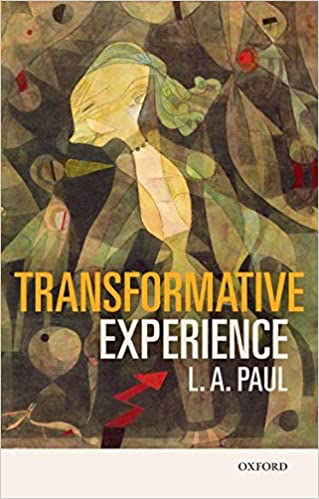
As came out in my answers to your questions, I’ve spent a lot of time in the last few years thinking about LA Paul’s puzzle of transformative experience, and so her book Transformative Experience is frequently lying open on my desk. Of course, as we’ve discussed, I don’t agree with Paul – but it’s challenging and important work that’s well worth engaging.
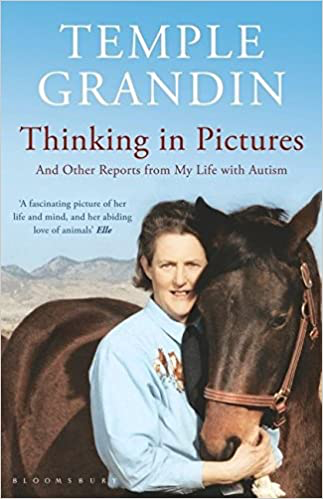
Finally, stepping outside of the philosophical literature, one book that really does a wonderful job of illustrating the power of imagination is Temple Grandin’s memoir, Thinking in Pictures. What I find especially interesting is Grandin’s discussion of her own experience with autism and how, in her view, her autism contributes to her highly imagistic thinking style. Grandin also discusses in detail how her imaginative ability has contributed to her success as a designer of livestock handling equipment—how it enables her to take a “cow’s eye view” of the situation and thus to design equipment that works better for handling cattle. The book is super accessible. There’s no philosophical knowledge needed to get something out of it, and it’s interesting on lots of dimensions beyond its insight into imagination

ABOUT THE INTERVIEWER
Richard Marshall is biding his time.
Buy his second book here or his first book here to keep him biding!
End Time series: the themes
Huw Price's Flickering Shadows series.
Steven DeLay's Finding meaning series
NEW: Joseph Mitterer's The Beyond of Philosophy serialised